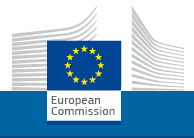
After more than 40 years of operation, DTVE is closing its doors and our website will no longer be updated daily. Thank you for all of your support.
Commission’s media plans attract mixed reaction
 Industry players have reacted to the revised Audiovisual Media Services Directive, unveiled by the European Commission yesterday.
Industry players have reacted to the revised Audiovisual Media Services Directive, unveiled by the European Commission yesterday.
John Enser, a partner at media law firm Olswang said the introduction of a European quota for on-demand content will prove controversial.
“In an on-demand environment, the prominence obligation is likely to prove highly controversial and subjective – it will be interesting to see how this is enforced, and whether a ‘European works’ genre in a list of genres will be enough,” he said.
The directive also calls for a loosening up of advertising restrictions placed on TV broadcasters, which was welcomed by industry groups representing linear channels and advertisers.
Jan Isenbart, president of sales house industry body EGTA said the proposal ‘delivered some much needed flexibility’, but do not go far enough
“There are still too many specific rules that only apply to linear broadcasters,” he sais. “We believe that more ambition could still ensure a more level playing field, enabling the sustainable production and financing of original, premium European content.”
The body representing Europe’s commercial broadcasters, ACT, took a similar line and said the revisions are ‘step in the right direction’ but ultimately do not go far enough in ensuring the traditional players and newer entrants are bound by the same rules.
“Commercial broadcasters are concerned that these [proposed revisions] do not sufficiently reflect the radically changing media landscape, where viewers are watching content increasingly through a widening range of online, on-demand platforms,” it said.
“In order for commercial broadcasters to continue to finance and produce high quality European content, they need to be able to compete freely and fairlywith all content providers regardless of platform.”
Cable Europe, which represents the continent’s cablers, meanwhile, welcomed the proposed changes. It welcomed the loosening of the rules on advertising and the encouragement to develop viewer protectiontechnologies.
Caroline van Weede, managing director of the industry group, said: “We support the European Commission in the broadly deregulatory, de-minimis approach taken for a large part of the provisions which will ensure that old and new players can be subject to a similar regulatory environment. It’s imperative in such a fast-changing and frequently disrupted environment that innovation and investment are encouraged.”
She added: “However, we call upon the Institutions to move away from prescriptive, quota driven approaches and focus instead on incentivising the audiovisual industry, which ultimately reaps rewards for the Digital Society as a whole.”
Producers and distributors have already registered concerns that rules over rights trading, that could see territory-specific deals phased out, will negatively impact the TV and film businesses.
“The EuropeanCommission plans would erode the exclusive territorial exploitation of film and television rights, with film and TV producers and audiences across Europe losing out, said John McVay, chief of UK indies industry group PACT.
He highlighted recent research that suggested the changes to rights trading could have a huge impact on consumers and the industry.
“The report also predicted a drastic drop in investment in new content and revenue losses for producers of up to €8.2 billion,” he said. “We all want to develop a stronger digital economy for film and television. But the Commission must work with, not against the industry, to deliver for consumers.”
Addressing the introduction of a European content quota, David Johnson, CEO at rights specialist Compact Media said: “While the quota proposal may deliver more investment into European content that could result in further growth it could also end up being a diversion with the purchase of cheap content merely to meet the quota requirements, which is not good for anyone.
“For the benefit of the consumer and the European content industry any investment in European content must be an investment in good content rather than just a tick box exercise just to qualify as European.”


